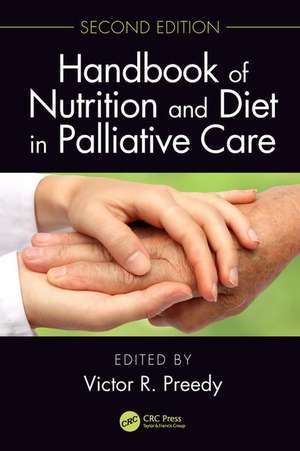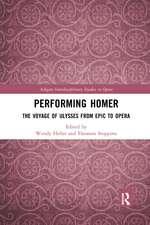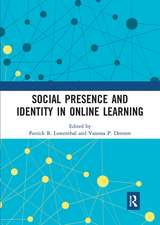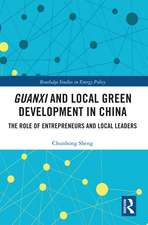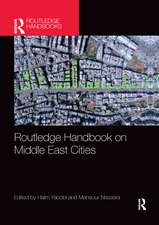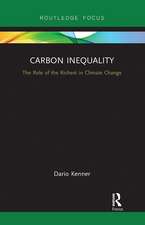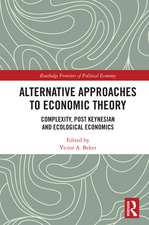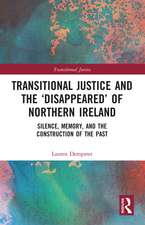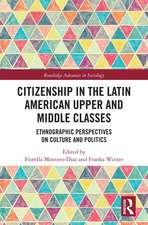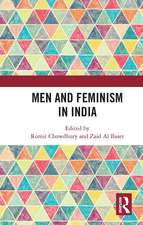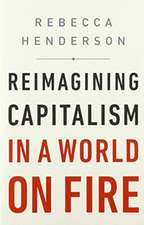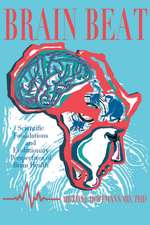Handbook of Nutrition and Diet in Palliative Care, Second Edition
Editat de Victor R. Preedyen Limba Engleză Hardback – 28 iun 2019
FEATURES
• Use of cannabinoids in palliative nutrition care
• Pain control in palliative care
• Communications in palliative/end-of-life care: aspects of bad news
• Anorexia in cancer: appetite, physiology, and beyond
• Palliative care in severe and enduring eating disorders
• Linking food supplementation and palliative care in HIV
• Eating-related distress in terminally ill cancer patients and their family members
• Palliative care of gastroparesis
• Preoperative nutrition assessment and optimization in the cancer patient
• Childhood leukemia, malnutrition, and mortality as components of palliative care
• End-of-life decisions in persons with neurodevelopmental disorders
• Resources: listing web sites, journals, books and organizations
| Toate formatele și edițiile | Preț | Express |
|---|---|---|
| Paperback (1) | 321.60 lei 6-8 săpt. | |
| CRC Press – 31 mar 2021 | 321.60 lei 6-8 săpt. | |
| Hardback (1) | 936.62 lei 6-8 săpt. | |
| CRC Press – 28 iun 2019 | 936.62 lei 6-8 săpt. |
Preț: 936.62 lei
Preț vechi: 1259.82 lei
-26% Nou
Puncte Express: 1405
Preț estimativ în valută:
179.25€ • 188.56$ • 149.56£
179.25€ • 188.56$ • 149.56£
Carte tipărită la comandă
Livrare economică 09-23 ianuarie 25
Preluare comenzi: 021 569.72.76
Specificații
ISBN-13: 9781138064072
ISBN-10: 1138064076
Pagini: 446
Ilustrații: 94 Tables, black and white; 50 Illustrations, black and white
Dimensiuni: 178 x 254 x 29 mm
Greutate: 1.06 kg
Ediția:2 New edition
Editura: CRC Press
Colecția CRC Press
Locul publicării:Boca Raton, United States
ISBN-10: 1138064076
Pagini: 446
Ilustrații: 94 Tables, black and white; 50 Illustrations, black and white
Dimensiuni: 178 x 254 x 29 mm
Greutate: 1.06 kg
Ediția:2 New edition
Editura: CRC Press
Colecția CRC Press
Locul publicării:Boca Raton, United States
Cuprins
Setting the Scene. The Need for a Specialized Interest in Food and Nutrition in Palliative Care. What do we Mean by Palliative Care? The World’s Major Religions’ View on End-of Life Issues. Why Surgeons are Ambivalent about Palliative Treatments. Sedation in Palliative Care and its Impact on Nutrition. Quality of Life Aspects of Diet and Nutrition in Dying Children. Nutrition and Quality of Life in Adults Receiving Palliative Care. Refractory Cancer Cachexia. Assisting Healthcare Facilities. Palliative Care Communications. Pain Control in Palliative Care. Cultural Aspects. Nutrition and Hydration: Japanese Perspectives. Nutrition Support in Palliative Care: Chinese Perspectives. Indian Perspectives. Cultural Aspects of Foregoing Tube Feeding. General Aspects. Stents in the GI Tract in Palliative Care. Artificial Nutrition. Support for Hydration at End of Life. Palliative Treatment of Dysphagia. Fatigue in Hospice Cancer patients. Constipation. Taste Alteration. Olfactory in Hospice Patients. Withholding Nutritional Support in European Countries. Cancer. Cachexia Related Suffering. GI Side Effects in Tumor Therapy. Upper GI symptoms. Palliative Surgery for Head and Neck Cancer. Total Parenteral Nutrition. Vitamin Deficiency. Appetite and Nausea. Palliative Gastrojejunostomy. Non-Cancer Conditions. Nutritional Support in the Vegetative State. Appetite Regulation in Renal Failure. Nutrition in End Stage Liver Disease. The Motor Disease. Nutritional Therapy in Amyotrophic Lateral Sclerosis. Pharmacological Aspects. Cannabinoids. Steroids. Stimulants in CF. Nutrition and Warfarin Interaction. Case Studies and Resources. Malnutrition in Esophageal Cancer. Nutrition in Advanced Dementia. Pain Control in Palliative Care. Research and Resources.
Recenzii
'This expanded and reorganized handbook addresses the educational needs of health professionals, family members, and caregivers regarding the value of nutrition in end-of-life care. [...] The handbook covers more than information about nutrition: for example, section 1 ("Setting the Scene") includes separate chapters on the meaning of palliative care, the role of religion and culture at end of life, quality of life, sedation, pain control, and communication. Users' understanding will be enhanced by the chapter summaries reviewing key facts, ethical issues, and important abbreviations. [...] The underrecognized importance of nutrition and sparsity of research make this a valuable resource to bridge the "intellectual divide [between] novices and experts" providing care to the terminally ill.'
Summing Up: Highly recommended. All readers.
-- L. K. Strodtman, emerita, University of Michigan, CHOICE Reviews.
'In the preface, Preedy notes that, “Optimal terminal and palliative care requires consideration of the patient and family unit as well as cultural and religious sensitivities…and there is an increasing awareness that diet and nutritional support play an integral part in the patient’s holistic well-being.”
The book has 35 chapters, presented in six sections, with contributions from 77 experts from around the world. Section I, “Setting the Scene,” describes palliative care in its bio-psychosocial context, nutrition and quality of life, refractory cancer cachexia, and the nutritional consequences of sedation in palliative care; whilst I am not certain they belong in a book about nutrition, there are two good chapters providing overviews of pain management and communication issues. Section II includes the cultural aspects of enteral feeding, and provides East Indian and Italian perspectives on nutrition in palliative care. Section III covers artificial nutrition and hydration, dysphagia, and anorexia. Section IV covers
Summing Up: Highly recommended. All readers.
-- L. K. Strodtman, emerita, University of Michigan, CHOICE Reviews.
'In the preface, Preedy notes that, “Optimal terminal and palliative care requires consideration of the patient and family unit as well as cultural and religious sensitivities…and there is an increasing awareness that diet and nutritional support play an integral part in the patient’s holistic well-being.”
The book has 35 chapters, presented in six sections, with contributions from 77 experts from around the world. Section I, “Setting the Scene,” describes palliative care in its bio-psychosocial context, nutrition and quality of life, refractory cancer cachexia, and the nutritional consequences of sedation in palliative care; whilst I am not certain they belong in a book about nutrition, there are two good chapters providing overviews of pain management and communication issues. Section II includes the cultural aspects of enteral feeding, and provides East Indian and Italian perspectives on nutrition in palliative care. Section III covers artificial nutrition and hydration, dysphagia, and anorexia. Section IV covers
Descriere
This book is a comprehensive guide, providing exhaustive information on nutrition and diet in terminal and palliative care. It covers physical, cultural and ethical aspects, bridging the intellectual divide in being suitable for novices and experts alike.
Notă biografică
Victor R. Preedy BSc, PhD, DSc, FRSB, FRSH, FRIPHH, FRSPH, FRCPath, FRSC is a senior member of King's College London (Professor of Nutritional Biochemistry). He is attached to the Department of Nutrition and Dietetics. He is also founding and current Director of the Genomics Centre and a member of the School of Medicine. Professor Preedy graduated in 1974 with an Honours Degree in Biology and Physiology with Pharmacology. He gained his University of London PhD in 1981. In 1992, he received his Membership of the Royal College of Pathologists and in 1993 he gained his second Doctoral degree, for his contribution to the science of protein metabolism in health and disease. Professor Preedy was elected as a Fellow of the Institute of Biology (Society of Biology) in 1995 and to the Royal College of Pathologists in 2000. He was then elected as a Fellow to the Royal Society for the Promotion of Health (2004) and The Royal Institute of Public Health and Hygiene (2004). In 2009, Professor Preedy became a Fellow of the Royal Society for Public Health and in 2012 a Fellow of the Royal Society of Chemistry. In 2015 the Society of Biology received its Royal Charter so Professor Preedy became a FRSB. In his career Professor Preedy worked at the National Heart Hospital (part of Imperial College London) and the MRC Centre at Northwick Park Hospital. He has collaborated with research groups in Finland, Japan, Australia, USA and Germany. He is a leading expert on biomedical sciences and has a long standing interest in nutrition, health and disease. He has lectured nationally and internationally. To his credit, Professor Preedy has published over five hundred articles, which includes peer-reviewed manuscripts based on original research, reviews, abstracts and numerous books and volumes.
